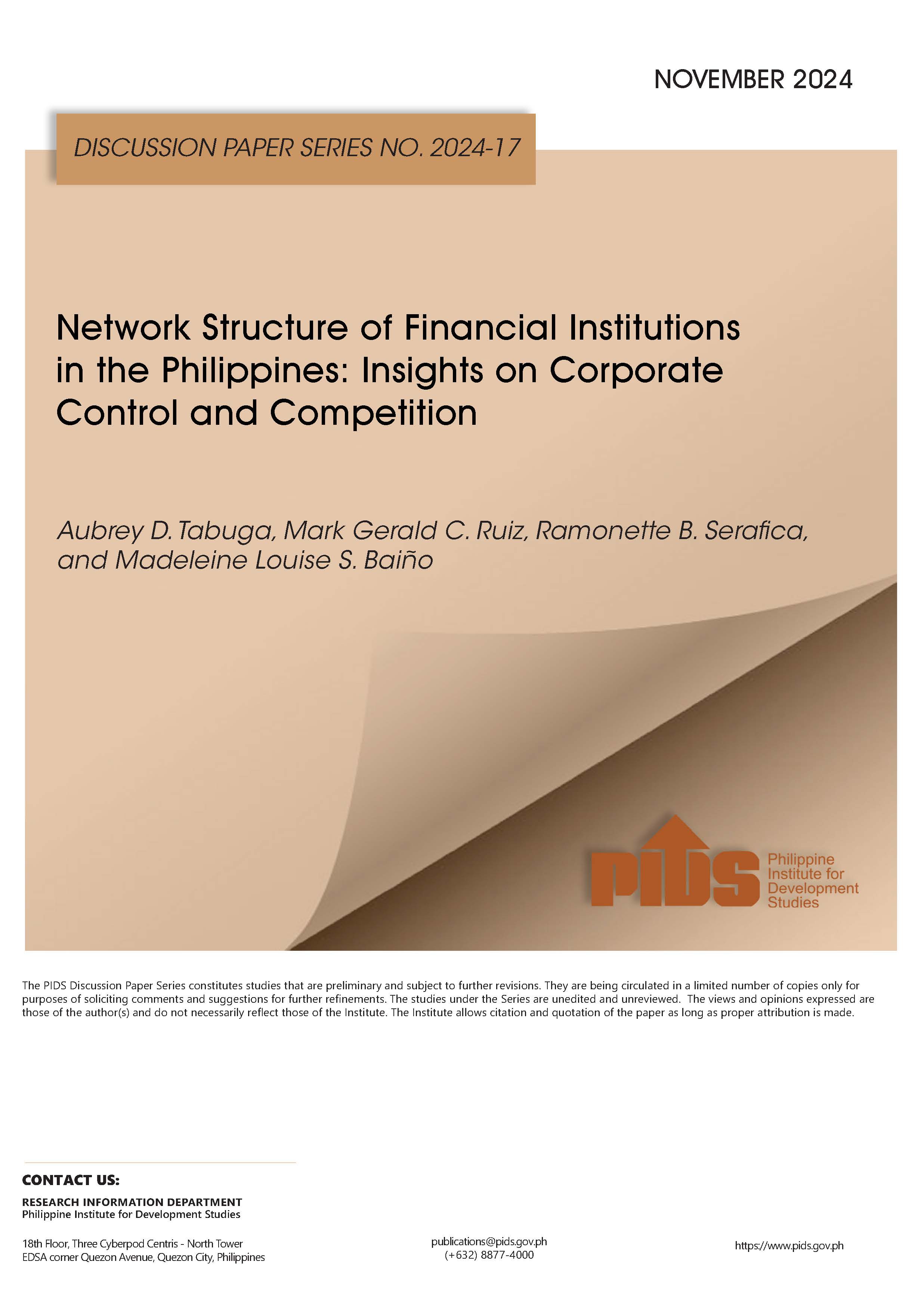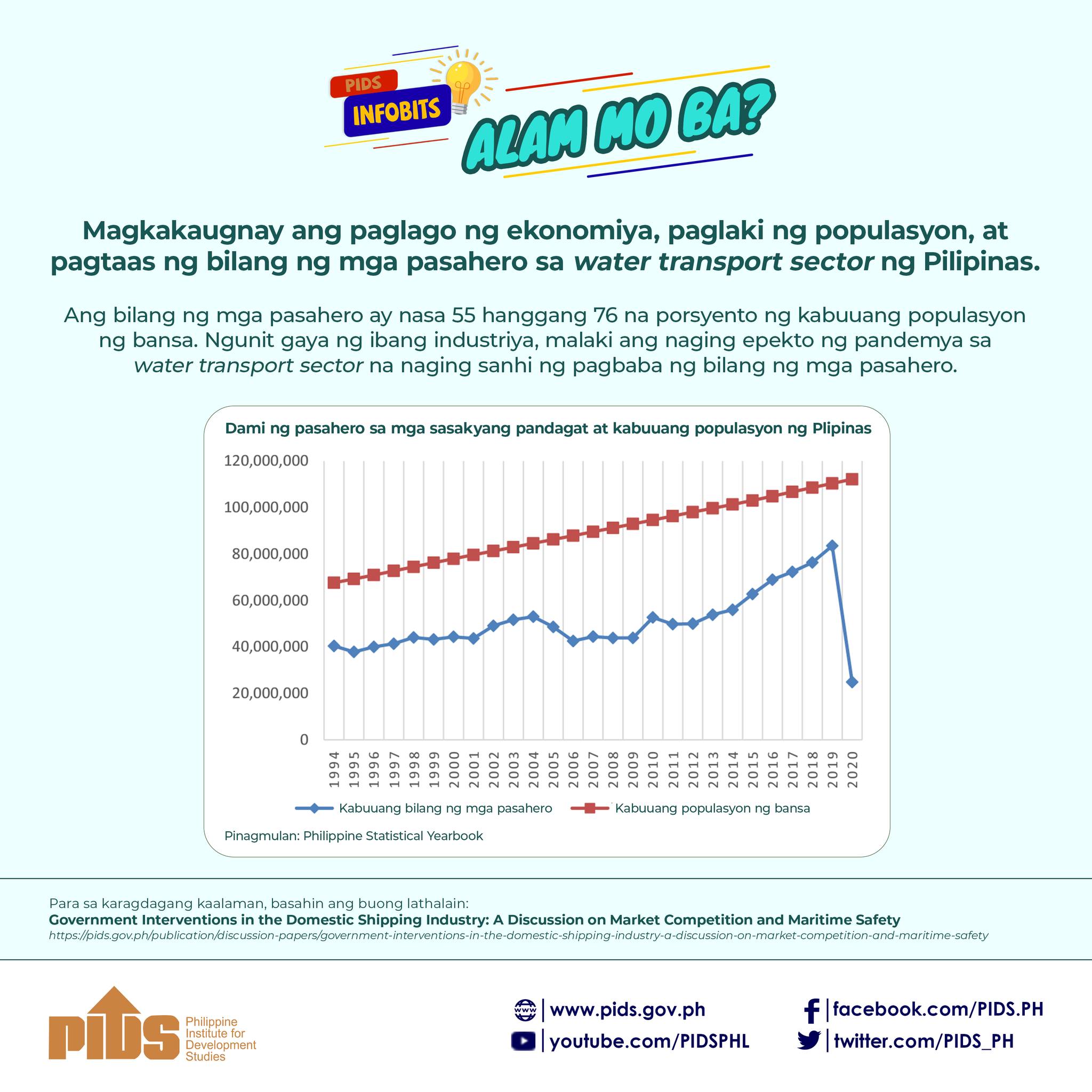The information and communications technology (ICT) sector in the Philippines is faced with regulatory bottlenecks that hinder its development, according to new a government-led research report.
A recent study by the Philippine Institute for Development Studies (PIDS) authored by PIDS consultant Lai-Lynn Angelica Barcenas and PIDS senior research fellow Ramonette Serafica revealed that certain policies and regulators have limited the ICT sector from gaining its full potential.
An interested service provider will have to go through layers of regulatory requirements in different branches of government, both national and local, before it can secure its license and franchise.
The study found that these processes take years to be completed, with investments being held up until the application is approved.
The existing regulatory policies have also affected the country’s compliance with international trade obligations on transparency, as some requirements are not publicly available, the study revealed.
In terms of establishing telecommunications networks, the acquisition of right-of-way and other permits from local government units where the physical telecommunications infrastructure will be built proved to be time-consuming and costly to service providers.
The study also noted that underdeveloped institutions addressing cyber-security problems is one of the major threats to ICT.
“The attendant risk to poor cyber-security strategies lowers trust and confidence in the use of ICT, thus, discouraging trade and investment in related services,” the study said.
To encourage investment in the ICT sector, the authors recommended the creation of an efficient regulatory framework.
They also suggested improving transparency in procedures, establishing a competitive safeguard mechanism, and having better coordination among government agencies on ICT-related policies.
Experts have long encouraged governments to invest in their ICT sectors to promote innovation and labor productivity which contribute to long-term economic growth.
The ICT sector is recognized as a driver for Philippine economic growth. However, the study noted that ICT connectivity is still a major concern for the country.
For one, Internet connection is low with only 1 out of every 20 Filipinos enjoying a fixed broadcast subscription due to higher prices relative to global prices. Internet speed in the Philippines is also among the lowest in Asia.
While this connectivity problem can be improved by encouraging foreign investment in ICT infrastructure and services, the Philippine Constitution makes it difficult for foreign players to enter and compete given its provision barring foreign-owned corporations from operating in the country.
“With the strict interpretation of the 40 percent foreign ownership limitation under current jurisprudence, the Philippines is unable to maximize foreign capital and technology in ICT development,” Barcenas and Serafica said.
A recent study by the Philippine Institute for Development Studies (PIDS) authored by PIDS consultant Lai-Lynn Angelica Barcenas and PIDS senior research fellow Ramonette Serafica revealed that certain policies and regulators have limited the ICT sector from gaining its full potential.
An interested service provider will have to go through layers of regulatory requirements in different branches of government, both national and local, before it can secure its license and franchise.
The study found that these processes take years to be completed, with investments being held up until the application is approved.
The existing regulatory policies have also affected the country’s compliance with international trade obligations on transparency, as some requirements are not publicly available, the study revealed.
In terms of establishing telecommunications networks, the acquisition of right-of-way and other permits from local government units where the physical telecommunications infrastructure will be built proved to be time-consuming and costly to service providers.
The study also noted that underdeveloped institutions addressing cyber-security problems is one of the major threats to ICT.
“The attendant risk to poor cyber-security strategies lowers trust and confidence in the use of ICT, thus, discouraging trade and investment in related services,” the study said.
To encourage investment in the ICT sector, the authors recommended the creation of an efficient regulatory framework.
They also suggested improving transparency in procedures, establishing a competitive safeguard mechanism, and having better coordination among government agencies on ICT-related policies.
Experts have long encouraged governments to invest in their ICT sectors to promote innovation and labor productivity which contribute to long-term economic growth.
The ICT sector is recognized as a driver for Philippine economic growth. However, the study noted that ICT connectivity is still a major concern for the country.
For one, Internet connection is low with only 1 out of every 20 Filipinos enjoying a fixed broadcast subscription due to higher prices relative to global prices. Internet speed in the Philippines is also among the lowest in Asia.
While this connectivity problem can be improved by encouraging foreign investment in ICT infrastructure and services, the Philippine Constitution makes it difficult for foreign players to enter and compete given its provision barring foreign-owned corporations from operating in the country.
“With the strict interpretation of the 40 percent foreign ownership limitation under current jurisprudence, the Philippines is unable to maximize foreign capital and technology in ICT development,” Barcenas and Serafica said.












